Coding Courses Teach Life Skills
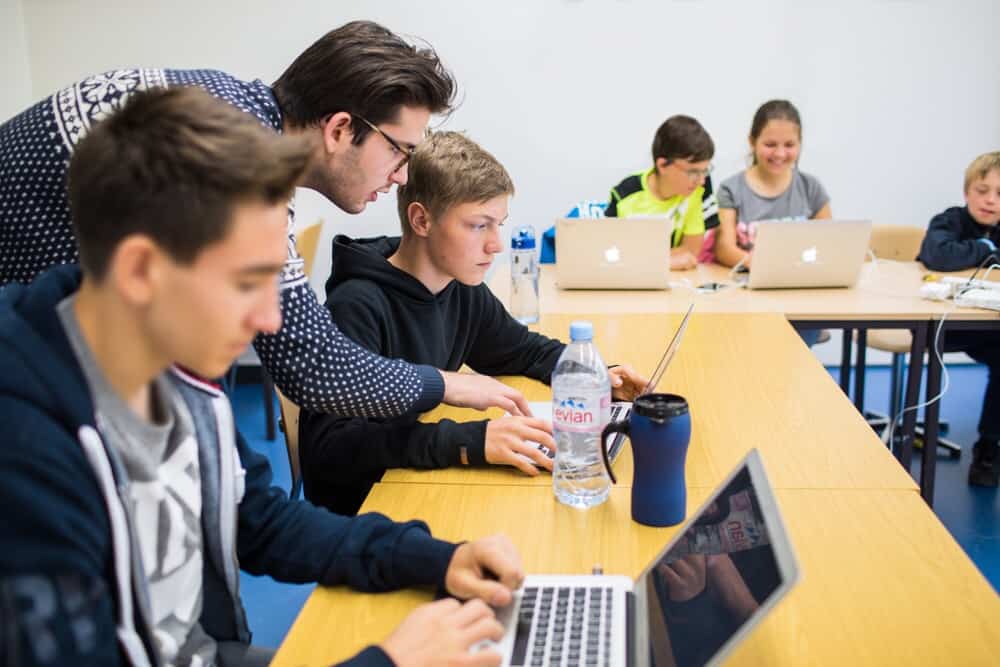
“We need to develop skills such as collaboration, problem-solving, lateral thinking, scenario thinking, and the most important one: accelerated learning,” says Rohit Talwar, CEO of Fast Future Research(1). He asked almost 500 of his fellow futurists to predict the future of work, and gathered their ideas in a report called, ‘The shape of jobs to come’.
The theme of the report is that the next generation of workers will have careers that will be very different from those of today. If some of the ideas that Talwar’s colleagues came up with (end-of-life advisers, climate change reversal specialists, vertical farmers in cities) seem fanciful, he only has to point to the number of careers, such as travel agents, that have almost ceased to exist in our lifetime because technology has made them much less important.
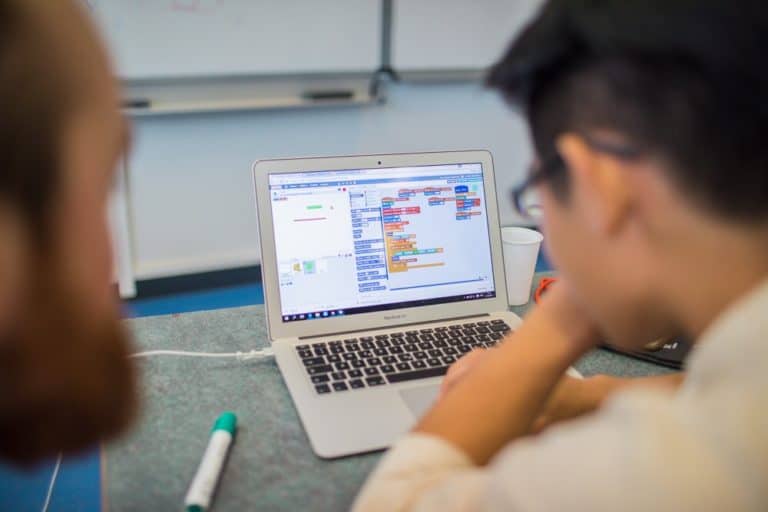
Is this the fault of schools?
No exactly. Yet Talwar and many others argue that traditional education isn’t changing quickly enough. Even academics agree. “When you have been through the school system you tend to think in a particular way. From a young age, we are taught to conform. The people who do well in standardised tests get Brownie points,” says Professor Andreas Eisingerich, a professor of marketing at Imperial College Business School in London, and program director of the Full-Time MBA course. “We need to change our mindset and have a future-oriented approach”, he says. Each year he teaches a boot camp for entrepreneurs as part of his MBA. He teaches his team of bright, international students that it is OK to fail because he thinks that constructive failure can teach them at least as much as passing their school exams.
The current situation isn’t necessarily the fault of the schools. They have structures so that parents know what to expect, consistent exams so that universities and employers can make a judgement about candidates, and universal textbooks. Then there are the strict guidelines of degree programs that limit topics and approach. Schools employ teachers whose job it is to teach an agreed curriculum. This is based on the knowledge that they acquired when they were educated.
And schools do this job better than ever, not least in Switzerland. The UN’s Human Development Index shows Switzerland to be behind only Norway and Australia in its measures of educational achievement. A child entering school can expect 13.4 years of education, with an average of one teacher to every 10 children. Almost three out of five children in Switzerland go on to tertiary education. It’s an educational environment that most countries could only dream of.
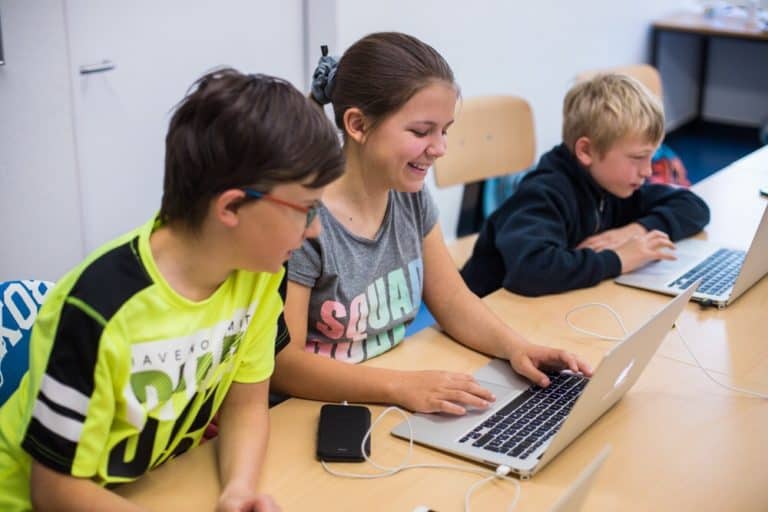
Learning for the future
But where can the next generation get a fast-track to the future described by Talwar, and the problem-solving skills valued so highly by Eisingerich? One way is by using their computers to learn to code. Developing STEM skills has a reputation as a solitary, nerdy, rules-based pastime. But not, so, says Marta Gehring, the co-founder and CEO of TechSpark Academy (2).
“Kids sometimes think computer science is boring and complicated, so why do it when I can play soccer? My mission is to open their eyes,” she says. TechSpark runs a series of week-long courses where school-age kids learn STEM skills in an interactive environment, taught by talented students from the nearby EPFL student population who have been selected for their teaching ability, and talent at communicating with, and inspiring, the children who they teach.
Gehring was inspired to start TechSpark by her 14-year-old daughter, who somewhat reluctantly attended a summer course in the US. “At first she didn’t want to go, but on the first day she came back and she was very excited. She had already programmed a turtle to crawl from one edge of the screen to the other. She was even talking about computer code at dinner,” she recalls, ” If I hadn’t forced my daughter to do it, she wouldn’t have gone. But now I see what she has learned and I think, ‘wow, what happened here?’”
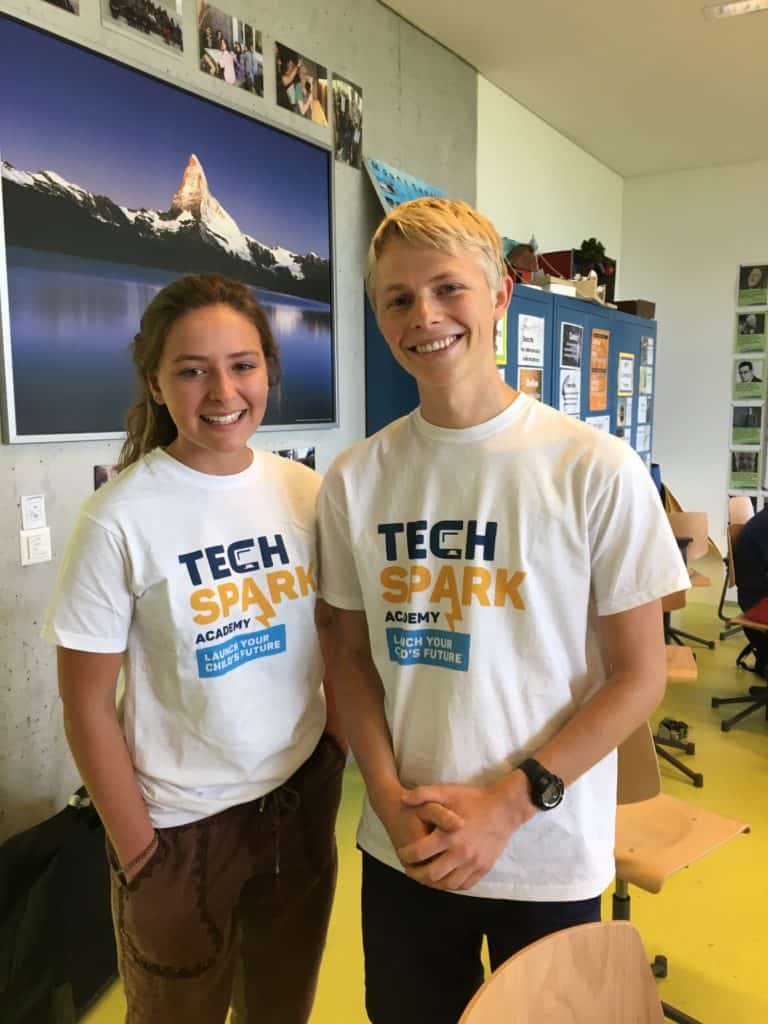
Learning how to think
Learning these skills isn’t just about getting a better job. Steve Jobs, the former CEO of Apple Computer, famously said that “everybody should learn how to program a computer because it teaches you how to think.” As a student, he travelled to India and experimented with Zen Buddhism, but it was messing around with technology that truly changed his life.
What happened? Gehring’s daughter, like Steve Jobs and many other inquisitive young people, found out how exciting it is to learn the way that coders solve problems.
This is the antithesis of taking the test, argues Igor Krawczuk(3), a researcher in artificial intelligence at EFPL. He created TechSpark’s Cyber Awareness for Teens course, which teaches them how to secure their computers by thinking for themselves, without a textbook or ready-made solutions. “The students on our course solve the sort of problems that they don’t see often at school, where they have a teacher who knows all the answers. They learn to keep working on something if you don’t immediately get a payoff,” he says.
Some of us are familiar with how good that feels: trying something, getting frustrated, learning from our mistakes, and trying something new until we, thrillingly, solve the unsolvable. So the students who learn STEM skills are learning valuable life skills, Krawczuk says. “We teach that nothing is too complicated that you just leave it to the experts automatically. The thing that gives you an advantage in life is trying again when what you try the first time doesn’t work. This means that kids who learn in these courses don’t need to know a lot when they come to us. They just need to be curious, and not be scared.”
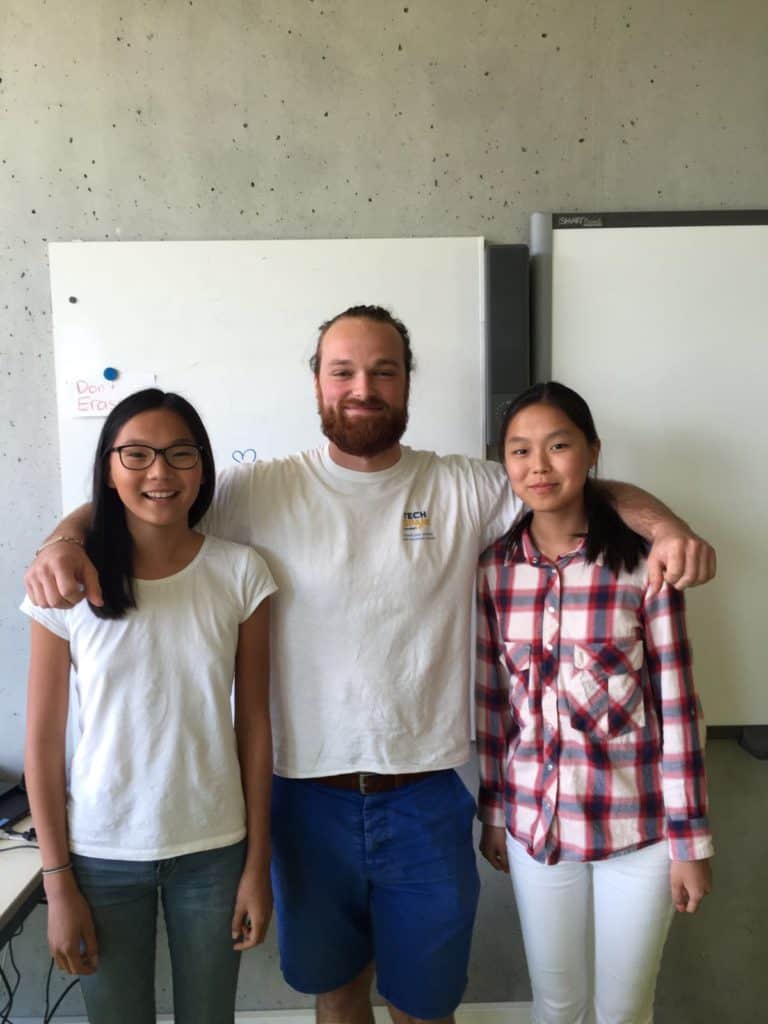
The hacker mentality
Learning to code teaches, teaching critical decision-making, cause and effect, patience, self-criticism and persistence. Krawczuk is of someone whose coding skills have helped him both in his studies and life, he says. At an early age, he describes catching the coding bug, becoming a hacker. Not in the sense that he would break into computers, but in the original sense of the word. Someone who solves technical (and non-technical) problems using creativity.
The hacker mentality lives on in the cult of “life hacks”. Life hacks are ingenious tips to make your existence better, beloved by coders. Life hacks encompass everything from putting a blob of ice cream in an almost-finished Nutella jar to eke out the taste, to hiding your money in a chapstick tube, because no one ever steals your chapstick.
Learning skills that last
One thing that worries the futurists and economists about our future is the “hollowing out” of the labour market that has taken place over the last quarter of a century. Those in high-skilled jobs have generally stayed in employment because computers aren’t (yet) smart enough to replace them. But others in skilled-but-routine jobs have seen them automated away, and are being shunted into lower-value occupations.
Carl Benedikt Frey, the co-director of the Oxford Martin Programme on Technology and Employment at Oxford University(4), has investigated exactly how vulnerable jobs are in the age of technology. Dr Frey and his colleague Dr Michael Osborne trained an artificial intelligence to sort more than 700 professions, and ranked them from least to most vulnerable based on the evidence of the jobs that have disappeared in our lifetimes.
The most vulnerable jobs in the future are those like bookkeepers and telemarketers, which are already being automated. And, if we just teach our kids to operate computers, don’t expect to gift them a lifetime of fulfilling employment.
But which jobs are least vulnerable? The future belongs to the problem-solvers. The stick-at-it diehards who think differently, and those who think laterally, according to Frey’s research. Those jobs “are likely to be intensive in creativity and in complex social interactions … things that computers are still relatively bad at,” he explains. Problem-solvers like detectives, engineers and coaches, composers and editors. In short: the future belongs to those that have learned to hack.
By Tim Philips
Tim Philips is a freelance researcher, journalist, broadcaster and book author, specialising in business and economics.
